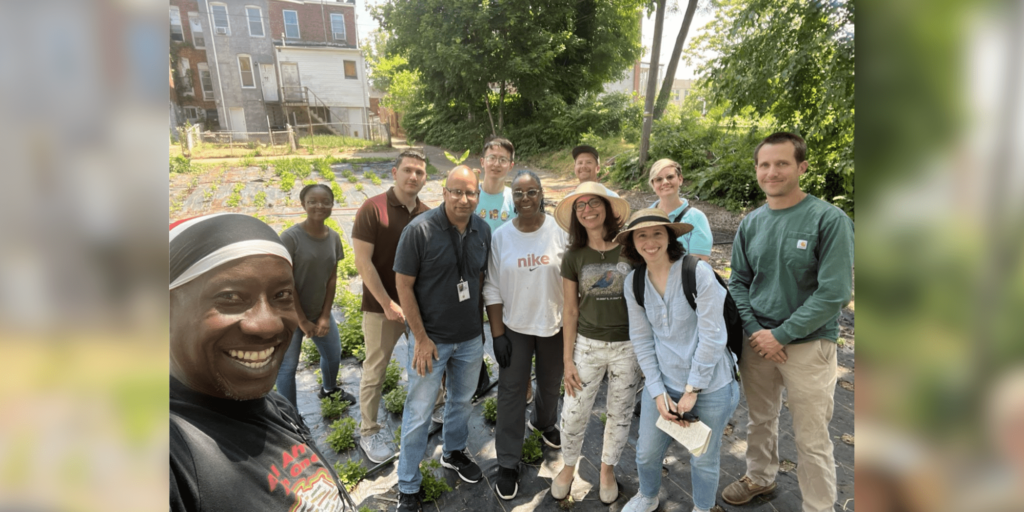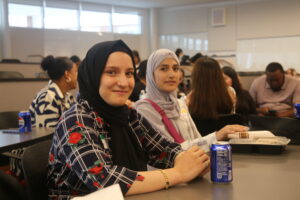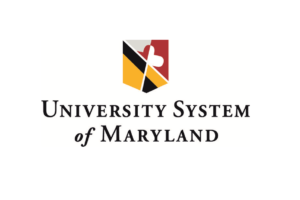MPower Professor Named Inaugural Chair of New Department of Global, Environmental, and Occupational Health
University of Maryland School of Public Health logo.
Published on the School of Public Health website | April 15, 2024
Expanding its public health breadth and reach, the University of Maryland School of Public Health will launch a new Department of Global, Environmental, and Occupational Health (GEOH), opening its doors this fall. The new department will replace and expand upon the Maryland Institute for Applied Environmental Health (MIAEH).
This transformation marks a pivotal moment, enabling the UMD School of Public Health to enhance its academic offerings and research opportunities. The new department creates a more robust entity to support global, environmental and occupational health in Maryland and beyond.
“Climate change, global health inequities and pandemic preparedness and response represent some of our planet’s greatest challenges,” said School of Public Health Dean Boris Lushniak. “The Department of Global, Environmental, and Occupational Health will address these and other public health issues head-on, accelerating sustainable solutions and reflecting our university’s dedication to fearlessly tackling global challenges.”
As demand for research, scholarship and highly trained graduates in global health, environmental health and occupational health has risen, faculty in MIAEH rose to the challenge, excelling in research, practice and academic excellence. But the group has needed a greater platform to recruit students and faculty and provide broader opportunities across growing fields.

With the launch of GEOH, they’ll have that platform.
“We are thrilled with this transition to departmental status,” said MPower Professor of Environmental Health Sciences Amy Sapkota, the inaugural chair of GEOH. “Our students need access to broader opportunities to formally train in critically important public health fields, including global health and environmental justice, which has become increasingly apparent during the pandemic. As GEOH, we will more readily expand our academic and research programs and attract high-caliber faculty and students.”
Sapkota cited the integral groundwork of several former MIAEH Directors in supporting the transition: Dr. Betty Dabney, Dr. Sam Joseph, Dr. Donald Milton and Dr. Steve Roth.
As an Institute, MIAEH launched multiple externally funded centers and programs, including the Public Health Aerobiology Lab; the CONSERVE Center of Excellence; the Community Engagement, Environmental Justice, and Health program; the Water Quality, Outreach and Wellness Lab; and the newly launched Global FEWture Alliance, funded by a Grand Challenges Institutional Grant.
GEOH will continue to build upon the institute’s legacy of success while expanding its scope. The department will offer a new interdisciplinary undergraduate major in global health, in collaboration with academic partners including the College of Agriculture and Natural Resources (AGNR), the College of Arts and Humanities, the College of Behavioral and Social Sciences (BSOS), the College of Computer, Mathematical and Natural Sciences (CMNS), and the College of Information Studies, along with the Office of International Affairs.
Within GEOH, the global health major – the first such undergraduate program in Maryland – will enable students to gain a deeper perspective on the complexities of global public health challenges and solutions, through core courses such as Introduction to Global Health Literacy, Environmental Determinants of Emerging Infectious Diseases and Introduction to Medical Anthropology and Global Health.
Students will also have opportunities to learn through experiences around the world, perhaps studying food, energy and water security solutions with peers in Nepal through virtual global classrooms or traveling to Brazil to better understand racism as a public health crisis. The new major also requires study of a world language, helping ensure graduates of the program are competitive in their field.

GEOH will also partner with UMD’s Environmental Science & Policy (ENSP) program to launch an undergraduate specialization in environmental justice. The specialization in environmental justice will provide students with tools to work at the intersection of social justice, policy, environmental science, environmental health and public health.
“With a public health and environmental science and policy lens, this program is unique among academic institutions and will serve as a highly desirable credential for our students, who will be prepared to be future changemakers in the field of environmental justice,” said ENSP Program Director Mark Carroll. ENSP is co-sponsored by AGNR, CMNS and BSOS.
With the i’s dotted and the globe ready to cross, the new department has already begun readying for its greater footprint.
“From College Park to around the world, we’re advancing public health research, training, leadership and practice, arming the next generation of leaders in the field with tools to improve health for everyone, everywhere,” Lushniak said. “By launching GEOH, the UMD School of Public Health will better support our current faculty, expand our pool of topnotch new faculty and offer students new research and training opportunities to help local and global communities and ultimately improve lives.”



